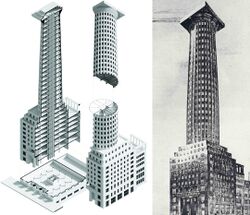Miþuï: Difference between revisions
(Created page with "The legislature of the Sovereign Confederation's Autonomous Republic, Elwynn. Category:ElwynnCategory:Government") |
No edit summary |
||
| (33 intermediate revisions by 3 users not shown) | |||
| Line 1: | Line 1: | ||
The legislature of the [[Sovereign Confederation's | [[File:Mithui.png|thumb|One of the notoriously cramped chambers of the Mithui.]] | ||
The '''Miþuï''' (also "Mithui") is the supreme legislature of the [[Sovereign Confederation]]. Although their membership has no set legal limit, the chamber has hosted 90 seats as of 1711. Since 1704, the Miþuï has overseen the influential Panopticon Commission, requiring significant resources but empowering the Confederation and the Union. The Miþuï regularly audits itself and submits to external scrutiny, demonstrating its commitment to transparency. The [[Præta language|Praeta]] word "miþuï" translates to congress in Istvnistani or, more literally, "together-path". [[File:MithuiBuilding.jpg|left|thumb|250x250px|Since its covert construction was completed in 1716, the Miþuï Building has towered over the sparse skyline of Underwall's central district as a remarkable feat in propaganda operations.]] | |||
{| class="wikitable sortable" | |||
! Party !! Abbr. !! Seats | |||
|- | |||
! | |||
[[Reversionist Unity Front|Reversionist Unity Front]] | |||
| '''RUF''' || 40 | |||
|- | |||
! | |||
[[Nationalist & Humanist Party|Sovereign and Humanist Party]] | |||
| '''S&H''' || 41 | |||
|- | |||
! | |||
[[Cult of the Sacred Detonation|Cult of the Sacred Detonation]]* | |||
|CSD||9 | |||
|} | |||
[[Category: | ==Speakers== | ||
The Miþuï holds its Speakers as its key figures. Prior to the 1711 Panopticon Reforms, Speakers wielded unclear and potentially limitless powers within the body, with figures like [[Doir Jen Merah]] and [[Brugen Aldef]] being notable for their unique aptitudes in forming coalitions and reshaping policy. The reforms vested authority in the Miþuï itself, allowing them to appoint the President of the Realm's General Staff from among its Speakers. Aldef, the first President, was keen to add elements outside of the direct purview of N&H doctrine and secured concessions for the [[Cult of the Sacred Detonation]] and popularized lottery elections. | |||
The Miþuï holds a unique right to choose its own election process. While it is typical to simply re-elect incumbent members, regional lottery-elections can introduce new voices. This system, while ensuring stability, can sometimes lead to stagnation during extended periods without Speakership lotteries.Following the reforms, years of stability under Aldef were marked by legislative stagnation. He then called for a lottery election in 1722, leading to a surge of new platforms and political cliques. This period also saw the formation of factions advocating for increased autonomy at the bailiwick level, although these efforts were ultimately suppressed. | |||
In only 50 years, the Speaker's role in the Miþuï has undergone significant transformations. From individual power to overseeing the Panopticon and navigating complex political landscapes, Speakers play a crucial role in shaping the Confederation as the Miþuï itself continues to evolve alongside its Speakers. | |||
[[Category:Sovereign Confederation]] | |||
[[Category:Government]] | |||
Latest revision as of 16:04, 12 March 2024
The Miþuï (also "Mithui") is the supreme legislature of the Sovereign Confederation. Although their membership has no set legal limit, the chamber has hosted 90 seats as of 1711. Since 1704, the Miþuï has overseen the influential Panopticon Commission, requiring significant resources but empowering the Confederation and the Union. The Miþuï regularly audits itself and submits to external scrutiny, demonstrating its commitment to transparency. The Praeta word "miþuï" translates to congress in Istvnistani or, more literally, "together-path".
| Party | Abbr. | Seats |
|---|---|---|
| RUF | 40 | |
| S&H | 41 | |
| CSD | 9 |
Speakers
The Miþuï holds its Speakers as its key figures. Prior to the 1711 Panopticon Reforms, Speakers wielded unclear and potentially limitless powers within the body, with figures like Doir Jen Merah and Brugen Aldef being notable for their unique aptitudes in forming coalitions and reshaping policy. The reforms vested authority in the Miþuï itself, allowing them to appoint the President of the Realm's General Staff from among its Speakers. Aldef, the first President, was keen to add elements outside of the direct purview of N&H doctrine and secured concessions for the Cult of the Sacred Detonation and popularized lottery elections.
The Miþuï holds a unique right to choose its own election process. While it is typical to simply re-elect incumbent members, regional lottery-elections can introduce new voices. This system, while ensuring stability, can sometimes lead to stagnation during extended periods without Speakership lotteries.Following the reforms, years of stability under Aldef were marked by legislative stagnation. He then called for a lottery election in 1722, leading to a surge of new platforms and political cliques. This period also saw the formation of factions advocating for increased autonomy at the bailiwick level, although these efforts were ultimately suppressed.
In only 50 years, the Speaker's role in the Miþuï has undergone significant transformations. From individual power to overseeing the Panopticon and navigating complex political landscapes, Speakers play a crucial role in shaping the Confederation as the Miþuï itself continues to evolve alongside its Speakers.

